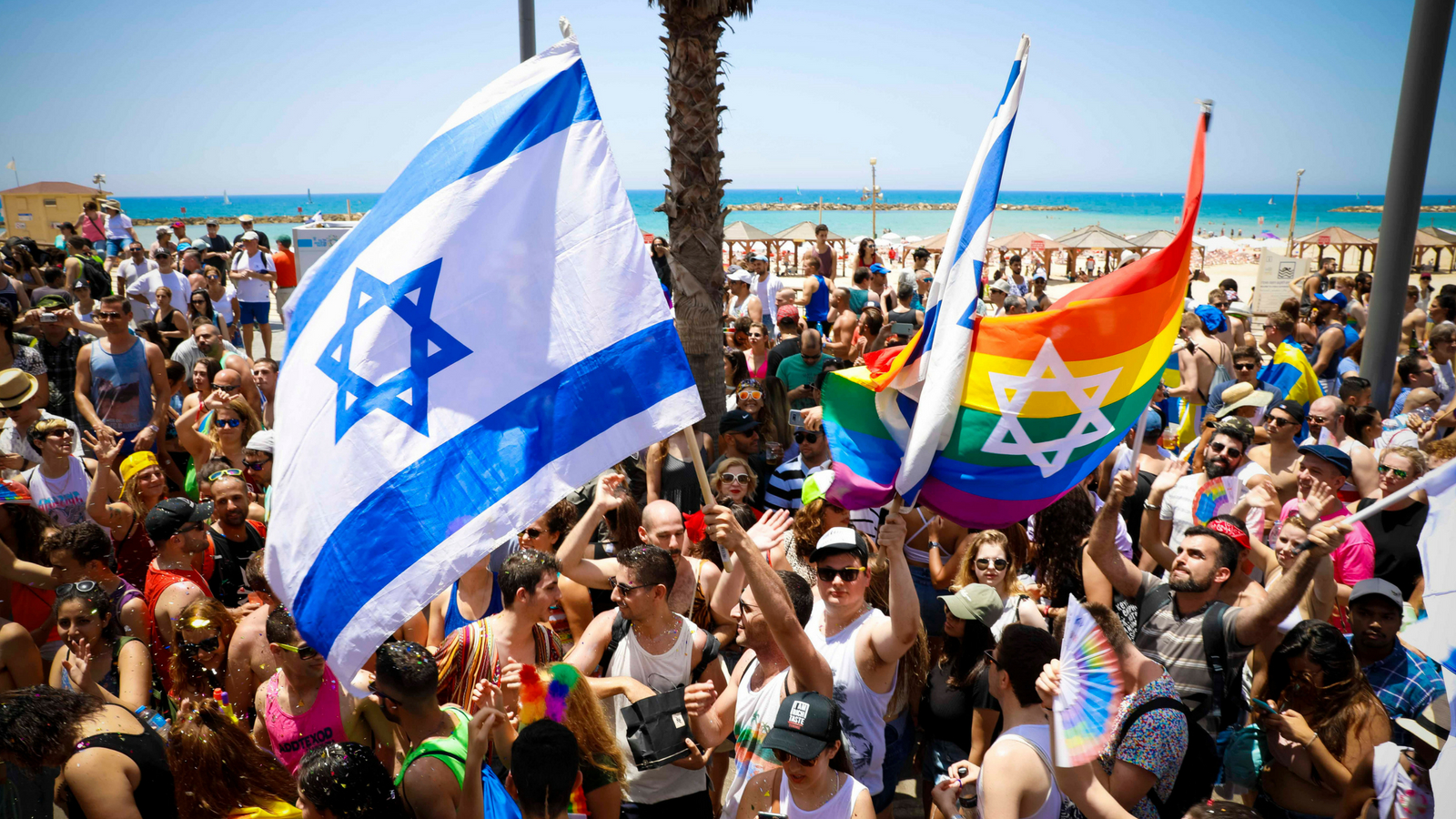The LGBT community vs. Anti-LGBT: Why does Israel itself as a state pass progressive laws but yet the intolerance is still rampant?
 |
| Israel's Gay Pride Parade, 2018 |
Some of these communities are intolerant of homosexuality and sexual permissiveness because according to the Book of Leviticus 18:22, it is quoted that ‘mankind should not lie with womankind; it is an abomination’ (Rosenthal 357), in a literal sense as a word from God and support it. Some individuals from Haredi, secular, and religious Christian and Muslim communities are going to not only finding other people to talk to in gay/lesbian support groups but will also go to places to have anonymous sex-even when some individuals are married in heterosexual marriages. (Rosenthal 360). Even though there are laws that prevent discrimination in the workplace against homosexuals, including laws that are illegal for commanding officers to question soldiers about their sexual orientation, and even justices allowing and passing progressive gay legislation, some gays and lesbians are still not welcomed with open arms from their own communities. (Rosenthal 359). Even during gay pride parties, some individuals who belong in the ultra-Orthodox community speak out against this as a promotion of perversion and would drive holiness away from Jerusalem. (Rosenthal 368). There are gay/lesbian support groups such as Jerusalem Open House (JOH), OrthoDykes, along with other blends of Arab-Jewish groups. (Rosenthal 365,368). Some individuals who are gay and lesbian are afraid of their own lives. For example, gays and lesbians who are found guilty of homosexuality in ultra-religious Muslim communities are not only subject to being disowned by their families: they can be shunned from their communities subjected to beatings, torture, and execution. (Rosenthal 364) However, the methods of punishments/ execution do depend on whether a person was married or not. Rosenthal’s point of view based on the evidence shows pro-LGBT inclusivity from the stories of gay and lesbian individuals from Arab and Jewish communities of ultra-religious backgrounds. She shares their stories as to why their religion believes that homosexuality is forbidden. The article, offensive slogans, posters, and banners have been put up on hotels in Jerusalem that are funded by a right-wing, ultra-Orthodox organizations called the Hazon movement which promotes anti-LGBT and anti-Reform Judaism. Hazon is working on to advance on a clear agenda to promote that there is only one kind of family and that is one mother and one father. Hazon is accused as being racist and offensive to progressive groups. Havruta, a more liberal group, has called out on the hate speech promoted by groups such as Gevanim and Hazon that has polluted peaceful relations in all sects of Judaism. Although, publisher Amos Schocken via Twitter said that these hateful messages should not have been posted in the first place, nor will it be posted in the future. This article claims that other organizations (Meromim Foundation) are no longer donating or being affiliated with groups such as Hazon. The author of the article , Shuki Sadeh’s point of view seems to be on the side of an inclusive, democratic Israel that supports the LGBT community. Sadeh gives coverage on the inside of the investigation of who is supporting the anti-LGBT posters that caused these posters to be removed within hours due to the outrage of offensive messages that promote hatred not only of the LGBT community but also the Reform Judaism community.
 |
| One of the anti-LGBT/anti-Reform posters on a hotel in Israel |
The Central Bureau of Israel Statistics of the “Population of Israel 1990-2009 Demographic Characteristics” show the population of marriages and children. On graph 6, the average age for both brides and grooms (in the first marriage in Israel) are shown. For brides, the average age is 24.7, and for grooms, it is 27.5 years of age (in heterosexual marriages.) Same-sex marriage is currently not legal in Israel. In graph 14, in total (both Arab and Jewish populations) about 23 percent are couples without children, 50 percent of couples with children under the age of 17 years old, and 9 percent of couples who have children between the ages of 18-24. For single parents, it is even lower. About 6 percent of single-parents on both Jewish and Arab populations have children under the age of 17 years old, and 2 percent of children between the ages of 18-24. The remaining ten percent states as “other.” The point of view of the graph does not give a clear percentage of same-sex couples who live together or who even raise families together.
Comments
Post a Comment